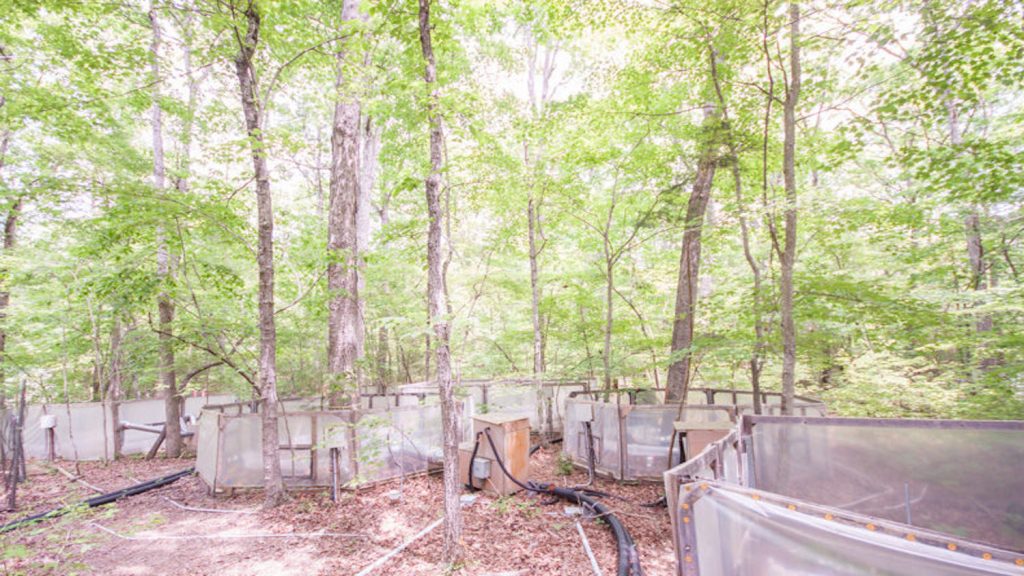Forests of the Future: Integrated Assessment of Climate Change and Ecosystem Diversity

Principal Investigator: Rob Dunn, Department of Applied Ecology, NC State University
Project Completion: September 2017. This project is now completed.
Implements Science Theme: 4
Cooperators: Lauren Nichols, and Clint Penick, NC State University
Overview
Understanding of the influence of global warming has been limited by a paucity of experiments. Taking advantage of the largest, longest-running experimental warming of a forest, we convened dozens of scientists from across the world to collect data to study and understand how bacteria, fungi, herbivores, plant pathogens, insects and a diversity of other groups respond to warming. We found that warming had a significant impact on ecosystems at both a site in North Carolina, as well as a more northern site in Massachusetts. The types of effects, however, differed between the north and south; they also differed as a function of the organisms considered. While warming affected all levels of organization, it had the greatest impact on phenology. Plants, microbes and animals were impacted to a similar extent, though the direction of the response varied by taxa, with some benefiting from warming, and other faring poorly. Warming impacted above ground responses to a greater extent than belowground responses. Overall, this experiment has provided us with a comprehensive picture of those taxa most likely to thrive or fail in light of the temperatures that will be experienced in the Southeast (and Northeast) in the next 100 years.
More Information
- See more information about this project as part of the Rob Dunn Lab Group.
